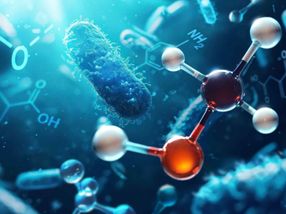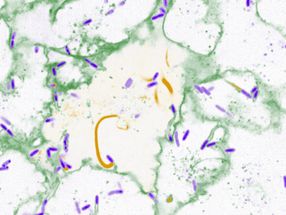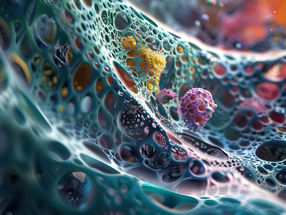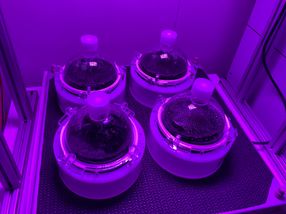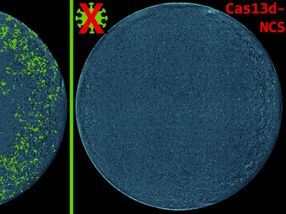Exciting new option for targeted cancer therapy
Scientists from Trinity College Dublin have uncovered a new class of compounds - glyconaphthalimides - that can be used to target cancer cells with greater specificity than current options allow.

Cervical cancer cells show green fluorescence from enzyme-activated compound.
Eoin Scanlan, Trinity College Dublin
Cancer is difficult to treat, and many current therapies are unable to specifically target cancer cells. This is problematic for medical professionals and patients, because it limits the dose of the drug that can be safely administered, and often causes severe and debilitating side-effects.
But the Trinity scientists have now demonstrated that a class of naturally occurring enzymes -- glycosidases -- that are heavily overexpressed in tumour tissue can be used to trigger the release of therapeutic payloads only in the local tumour sites where they are needed.
This finding may therefore result in the development of improved targeted cancer therapies with significantly reduced side-effects for patients.
In addition to killing cancer cells, the technology may also be used to image cancer cells, with potential applications in cancer imaging and diagnosis.
Associate Professor in Chemistry at Trinity, Eoin Scanlan, led the multidisciplinary group. He said: "This is a really exciting discovery because it brings us closer to more targeted treatment of cancer. Some current therapies are limited due to the toxicity of the compounds, but our compounds are completely inactive until they are released by the enzymes that are naturally overexpressed at the tumour site. The active compound is then rapidly taken up by cancer cells."
"Our next steps will be to apply this technology to release specific anti-cancer drugs and to test it against a range of different cancer types."
Original publication
Elena Calatrava-Pérez, Sandra A. Bright, Stefan Achermann, Claire Moylan, Mathias O. Senge, Emma B. Veale,D. Clive Williams, Thorfinnur Gunnlaugsson and Eoin M. Scanlan; " Glycosidase activated release of fluorescent 1,8-naphthalimide probes for tumor cell imaging from glycosylated ‘pro-probes’"; Chem. Comm.; 2016
Most read news
Original publication
Elena Calatrava-Pérez, Sandra A. Bright, Stefan Achermann, Claire Moylan, Mathias O. Senge, Emma B. Veale,D. Clive Williams, Thorfinnur Gunnlaugsson and Eoin M. Scanlan; " Glycosidase activated release of fluorescent 1,8-naphthalimide probes for tumor cell imaging from glycosylated ‘pro-probes’"; Chem. Comm.; 2016
Organizations
Other news from the department science

Get the life science industry in your inbox
From now on, don't miss a thing: Our newsletter for biotechnology, pharma and life sciences brings you up to date every Tuesday and Thursday. The latest industry news, product highlights and innovations - compact and easy to understand in your inbox. Researched by us so you don't have to.

